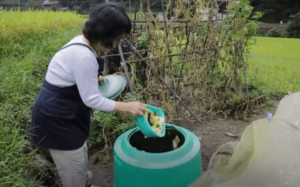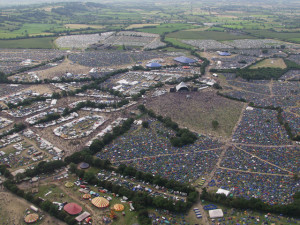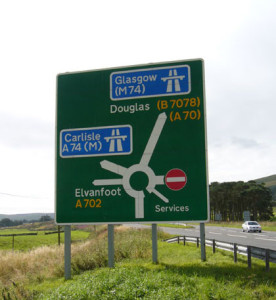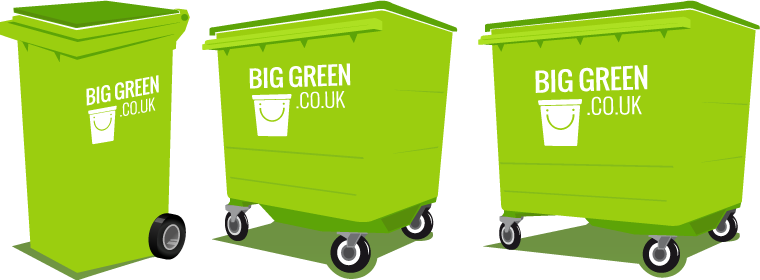Derbyshire council gets tough with fly-tippers
South Derbyshire District Council prosecutes the third fly-tipper in six months
A Staffordshire delivery driver has been prosecuted by South Derbyshire District Council after he dumped commercial waste on a street in Church Gresley in March last year.
The 50-year-old delivery driver fly-tipped cardboard boxes and plastic packaging materials in John Street, Church Gresley, despite the company for whom he worked possessing a business waste contract for the legal removal of commercial waste.
Safety officers from South Derbyshire District Council were informed by a member of the public about the fly-tipped waste and, despite a lack of CCTV coverage in the area, they managed to trace the dumped material back to the transport company for whom the defendant worked.
The defendant appeared in Southern Derbyshire Magistrates’ Court last week where he pleaded guilty to illegally to disposing of controlled waste without an environment permit. He was found guilty of breaching the Environmental Protection Act 1990 and was handed a £772 fine, and ordered to pay costs of £962.
This is the third successful prosecution that South Derbyshire District Council has brought against fly-tippers within the last six months, as it attempts to send the message that anyone caught fly-tipping in the district will be punished accordingly.
Councillor Peter Watson, chairman of the environmental and development services committee, said: “Our approach has brought some extremely positive results – incidents of fly-tipping in South Derbyshire fell every year between 2006 and 2014.”
If you would like to know more about our waste management services, please follow this link.
East Northamptonshire residents do their bit to recycle food
The council has saved £20,000 with the help of recycling residents
East Northamptonshire Council has thanked residents for helping to recycle 220 tonnes of food waste in December 2015, saving the council £20,000 in landfill tax.
East Northamptonshire Council launched The Feed Your Caddy Campaign, a Recycle for Northamptonshire project, which residents must sign up to, after which they receive a information pack and a “I’m in to win” sticker which they stick onto their food waste council bin to be one of four household in with a chance of winning a prize every month.
The council initiative has encouraged more households to recycle their food waste using their council food caddies, resulting in the highest amount of food waste sent to be recycled in a single month, rather than to the landfill, since January 2014.
Every council in the UK must pay a standard landfill tax of £82.60 for every tonne of waste that is sent to landfill; this means that the residents in East Northamptonshire helped the council save more than £20,000 in just the month of December.
Local councillors are hoping that the initial success of The Feed Your Caddy Campaign will not dwindle and that East Northamptonshire residents recognise the difference that they are making by simply using their food waste bin.
Steven North, East Northamptonshire council leader, said: “I want to thank our residents for continuing to show their passionate commitment to recycling … We’re counting on your continued support to help ensure that East Northamptonshire’s recycling rate just keeps getting better and better.”
If you would like to know more about our waste management services, please click here.
Low oil prices threaten UK plastic recycling
UK plastic recycling sector continues to suffer as oil prices plummet
The persistent low cost of crude oil is threatening plastic recycling firms in the UK, as manufacturers are finding it cheaper to buy newly produced plastic rather than recycled plastic.
The UK has already seen a number of plastic recycling centres close as a result of the plummeting crude oil price, which has dropped significantly over the last year, decreasing drastically from £78 to £35 per barrel initially, before dropping to the current rate of about £23 per barrel.
The Closed Loop Recycling factory, situated in Dagenham, was an early casualty of the oil price slump, when it ceased production in June 2015, resulting in 120 job losses.
A former director at the plant, James Samworth, told Sky News: “Oil makes up about 30% of the cost of ethylene, which is the raw material for a lot of plastic … When the oil price went from $110 to $50 that basically reduced the gross margins on this plant by about 40% in a matter of weeks…”
A spokesperson from the Department for Environment, Food and Rural Affairs said that it understands how these are troublesome times for the plastic recycling sector and that the UK Government and industry organisations are “developing and securing new markets for this valuable resource.”
However, other leaders in the plastic recycling sector, including Gary Claypole, from MBA Polymers, think that the UK Government is not doing enough to support the plastic recycling industry compared to other European countries.
Please click here to find out more about our business waste services in your area.
EU suggests more bins for UK households
A new European Commission report advises four recycling bins per UK household
A European commission report outlines demands that would see UK households separating their recycling into four different bins for food, metal, glass and paper, which would have to be collected separately by council waste collectors.
At present, residents in the UK must separate their household waste into two or three council bins; one of which is a commingling recycling bin that contains a separate compartment for paper waste. Many people up and down the nation already feel that the current number of council bins per household present an eyesore and that the system is not successful.
The European commission report comes just a few weeks after a freedom of information report revealed that UK councils are sending more recycling waste to landfill than in previous years, which many people feel makes a mockery of the public’s recycling efforts.
Hot on the heels of this, was a report released last week by resource company, Viridor, which claims that England’s waste management system is “outdated” and a resource network between the private and public sectors would be more beneficial for the country’s economy and the recycling rate.
When asked about the new European Commission report, eurosceptic MP Philip Hollobone, of the Conservative party, told The Sun newspaper: “These sort of decisions need to be taken in this country … They don’t need to be imposed on us by unelected bureaucrats from other countries and we are going to get more such interference if we stay In the EU.”
However, the EU report was also met with approval from some government officials in the UK, including The Department for the Environment, Food and Rural Affairs, as the report suggests that separating recycling waste prevents the contamination that occurs when it is commingled.
If you are considering investing in a business waste management service, please click here to find out more about what we do.
Hong Kong celebrate commencement work at e-waste facility
Groundbreaking electronic waste facility to open in Hong Kong
The cutting-edge e-waste facility is being developed by ALBA Integrated Waste Solutions Hong Kong, which is part of the German ALBA Group, and is forecasted to recycle around 56 million tonnes of electronic waste every year.
ALBA IWS celebrated the commencement of building work at their Waste Electrical and Electronic Equipment Treatment and Recycling Facility on January 21 and were joined by officials from the Environmental Protection Department and the Hong Kong government.
The facility is being constructed at the EcoPark in Tuen Mun and is being funded by the Hong Kong government to tackle the problem of increasing e-waste; Hong Kong creates an estimated 70 million tonnes of electronic waste each year. The Hong Kong Government and ALBA IWS have signed a contract which stipulates that the latter must build and operate the facility and provide a collection service throughout Hong Kong until 2027.
Mr. WONG Kam-sing, Secretary for the Environment. “Key partners of this joint venture include ALBA … and IWS, a recyclable collector rooted in Hong Kong. We are confident that with their extensive experience in the environmental industry, they will be able to proactively source regulated e-waste within the community for proper treatment at the facility…”
The WEEE Treatment and Recycling Facility will employ over 280 people from the local area. The workers will sort through all the electronic waste that is collected by the facility and separate any electronic goods that are considered usable from those that are to be broken up for their materials and parts. Any e-waste that is considered toxic will be handled in a controlled environment that will meet all health and safety regulations.
Click here to find out more about our business waste management services.
East London Brewery produces beer from old bread
Food waste charity founder creates beer from unwanted bread
An east London brewery has developed a method for turning old bread into beer, after the beverage’s founder decided he wanted to do his little bit to tackle the issue of global food waste.
Recent figures suggest that the UK wastes 15 million tonnes of food every year; baked goods, and bread especially, have been branded the worst offenders. Tristram Stuart, founder of food waste charity ‘Feedback’, was at the Brussels Beer Project when he first had the inspiration of giving unwanted bread a new lease of life.
An estimated 24 million slices of bread are wasted each year by British households; a spokesperson from Feedback claimed that the unwanted baked produce which is thrown away each year in the UK, could feed 26 million people across the world who are suffering from a severe lack of food.
Now, Tristram Stuart and his team have found a ingenious way of saving some of this bread from the bin and turning it into something delicious. Each bottle of the new, appropriately named, Toast Ale contains one slice of old bread, taken from bakeries, sandwich shops, and delis.
This waste bread is blended into crumbs and then brewed with hops, malted barley and yeast. It goes through the necessary fermentation process until its ready, and then, there it is: a refreshing bottle of environmentally friendly beer.
Tristram Stuart commented: “We hope to put ourselves out of business. The day there’s no waste bread is the day Toast Ale can no longer exist.” The beer reaches shelves on January 28 and is to cost £3 per bottle.
To find out more about our waste management services, please follow this link: https://biggreen.co.uk
Japanese village produces almost zero-waste
The inhabitants of a southwestern Japanese village have developed a method for recycling that results in almost zero-waste production.
The village of Kamikatsu is located approximately 430 miles away from the bustling Japanese capital, Tokyo. The inhabitants of this small village have devised a way of significantly reducing landfill waste by separating items into categories and even sub-categories; steel cans and aluminium cans, for example, can not be commingled.
Altogether, the inhabitants of Kamikatsu must separate their waste into 34 different bins; and the British think they have it tough with three council bins!
The villagers take their organised waste to the local recycling centre, where it is double-checked by the workers. There is now a zero-tolerance approach to the incineration of waste in the village, since it is responsible for producing vast amounts of greenhouse gases which are damaging for the environment.
Any unwanted clothing and furniture is taken to a local shop, where the villagers can exchange their unwanted items for other goods that have been left behind. There is even a factory in the village, where local woman produce goods from recycled materials.
All of these efforts result in a recycle rate of 80 per cent, while the remaining 20 per cent goes to landfill sites. The village hopes to be 100 per cent zero-waste by 2020.
Glastonbury Festival admits breaching environmental regulations
Representatives of the Glastonbury Festival are being prosecuted by the Environment Agency and have gone before South Somerset and Mendip Magistrates’ Court charged with breaching environmental regulations during the 2014 festival.
The Environment Agency claim that a faulty storage tank, connected to the festival’s sewerage system, had leaked a “large quantity” of human waste into the neighbouring river Whitelake. The leaked human waste triggered one of the agency’s river sensors which alerted them to an increase in ammonia levels.
The Environment Agency brought a prosecution against Glastonbury Festival 2014, as they believe the leak effected the water quality and resulted in the death of 42 fish, including protected brown trout.
Michael Eavis, Glastonbury Festival founder, and Christopher Edwards, the operations director, appeared in South Somerset and Mendip Magistrates’ Court, in Yeovil, and admitted to the charge but Kerry Gwyther, representing, told the court that the festival did not “accept that it was a major incident as described by the agency.”
Kieran Martyn, prosecuting, told the court that the breach could be classed as a “category one”, which, if ruled true, could result in a fine from £300 up to £55,000. Mr Martyn blamed the tank’s failure on poor maintenance but the Glastonbury representatives said that the leakage had been described by the tank’s manufacturer as a “freak accident”.
District judge David Taylor adjourned the trial for a “Newton hearing”; the two parties will now sit with a judge in order to determine the facts of the case.
Bedfordshire waste recycling company in court for breaching permit rules
The director of a Bedfordshire wood recycling company has appeared in Luton Crown Court on behalf of his company after it breached the conditions of its permit.
The company, which was based in Ampthill before its liquidation in 2013, was found to be in breach of its permit by the Environment Agency after they discovered that the company was operating a regulated waste centre at its premises in Hertfordshire without holding the necessary permits.
The company’s permit was suspended in 2013 by the Environment Agency after they received complaints that a fire at the company’s premises in Potters Crouch, Hertfordshire, had been burning for a week. The fire, which started in November of 2011, caused considerable disruption to residents in the area.
The Environment Agency was concerned that waste at the recycling site involved “a risk of serious pollution”,and that “smoke from a fire at the site could [have] cause[d] a risk of serious harm to human health.”
The waste company is now facing a number of charges at Luton Crown Court and is also being prosecuted by Central Bedfordshire Council for breaching the Town and Country Planning Act of 1990 by storing materials at its premises above three metres high. The trial continues.
Call for government to reimburse landfill tax after nationwide flooding
A skip hire company has called on the government to reimburse flood effected councils their landfill tax payments in the midst of the major clean-up operations which are being carried out throughout the UK.
More than 16,000 homes were flooded in December as the UK suffered one of the wettest Decembers yet recorded in British history. Northern England and Scotland were the most effected areas, with Lancashire, West Yorkshire, Cumbria, Dumfries, and Kinross bearing the brunt of the nasty weather.
Now that the big clean-up is underway and families and businesses must dispose of ruined furniture, white goods and electrical items, which, under government regulations, are now considered hazardous waste and must be taken to landfill rather than recycled.
Tractors and trailers in Carlisle, Cumbria, have collected more than 1,050 tonnes of waste from households and businesses. This waste has been taken to temporary tipping grounds, including a car park, until the councils have assessed the damage and decided upon the best solution for the disposal of so much hazardous waste.
At the present time, councils in England must pay £82.60 landfill tax per tonne of waste, but, considering the nature of this emergency, there have been numerous calls for the government to “ … consider all reasonable means of supporting local authority areas which have been affected by the floods”











